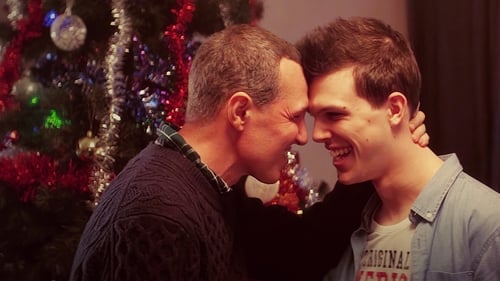
Editor
Elizaveta Petrovna had just buried her husband, with whom she had lived all her life. The only daughter and the only grandson - that's the whole family, whose life was largely determined by the deceased. In the process of parsing her husband's things, she discovers a letter from her husband. It contains a secret that the head of the family kept from Elizabeth Petrovna for several decades, the story of his French love and a child born out of wedlock. The woman is trying to tell her daughter Valeria about this, but she has her own problems and interests, "not up to it." What to say about the grandson who lives in a separate, separate reality. It seems that in this family it is simply not customary to listen, let alone hear each other. But gradually, family members, each experiencing grief in their own way, find common ground.

Editor
In the future, all diseases have disappeared, and people don't need medicines. They come to the pharmacy for spiritual joys: a languid look, an anti-scandalous vaccine and vitamins against lies.

Editor
Varya has chosen, as they say, a not entirely female profession: she wants to become a firefighter. The girl comes for some work experience to a fire brigade where she must prove to everybody that she is worthy of being there.

Editor

Editor
The film investigates Muscovites’ attitude to home, it is a story about the tough choices that we make in a big city. The characters of the film are young people who have new values: the importance of living near work, the gym, the city center or being able to quickly put all they have in boxes and move to a new place. Nevertheless, for each of them, it is still important to see their home as a reference point, endowed with special sentimental characteristics, which they are constantly searching.

Director of Photography
The film investigates Muscovites’ attitude to home, it is a story about the tough choices that we make in a big city. The characters of the film are young people who have new values: the importance of living near work, the gym, the city center or being able to quickly put all they have in boxes and move to a new place. Nevertheless, for each of them, it is still important to see their home as a reference point, endowed with special sentimental characteristics, which they are constantly searching.

Director
The film investigates Muscovites’ attitude to home, it is a story about the tough choices that we make in a big city. The characters of the film are young people who have new values: the importance of living near work, the gym, the city center or being able to quickly put all they have in boxes and move to a new place. Nevertheless, for each of them, it is still important to see their home as a reference point, endowed with special sentimental characteristics, which they are constantly searching.

Director
Maison d'Être is an exploratory documentary about people's emotional place attachment in highly dynamic Greater Paris undergoing large-scale urban renewal campaigns. Parisien suburbia has been a frontier between world civilisations where wellbeing encounters despair. Here local habits get confronted by government-sponsored plans for urban transformation and social aid. In Paris "home" manifests itself as one of the key existential challenges of the modern culture - a "raison d'être" of everyday life. The film is addressed to both professional audiences of urbanists, city planners, architects, and curious public. It displays numerous conversations among residents, city activists, politicians, city planners and scientists, those who reflect on the regeneration strategy of the socially depressed urban neighbourhoods.

Director of Photography
Maison d'Être is an exploratory documentary about people's emotional place attachment in highly dynamic Greater Paris undergoing large-scale urban renewal campaigns. Parisien suburbia has been a frontier between world civilisations where wellbeing encounters despair. Here local habits get confronted by government-sponsored plans for urban transformation and social aid. In Paris "home" manifests itself as one of the key existential challenges of the modern culture - a "raison d'être" of everyday life. The film is addressed to both professional audiences of urbanists, city planners, architects, and curious public. It displays numerous conversations among residents, city activists, politicians, city planners and scientists, those who reflect on the regeneration strategy of the socially depressed urban neighbourhoods.







